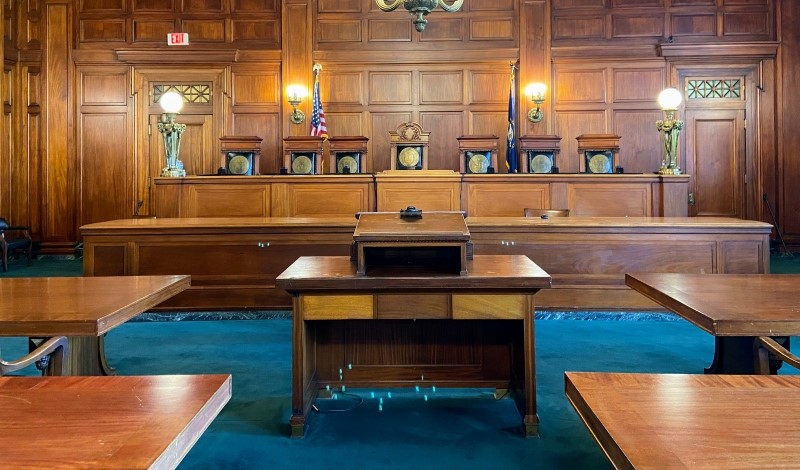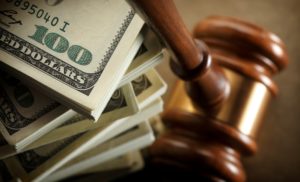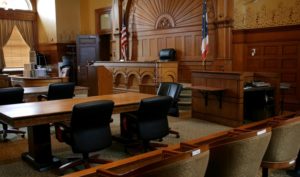
Scholars argue that lawyers must do more to discipline their own peers.
Few people think highly of lawyers’ honesty. But society nevertheless trusts lawyers to draft and enforce their own rules for ethical behavior.
This practice of having lawyers self-regulate must be improved, argues Veronica Root Martinez, a professor at Duke University School of Law, and Caitlin-Jean Juricic, a graduate of Notre Dame Law School. In a new article, they propose increasing the deterrence of professional sanctions and, ultimately, forcing members of the profession to self-regulate more seriously.
Root Martinez and Juricic note that lawyers, like doctors, are members of a profession that should further the public good. For this reason, state governments usually allow the profession to regulate itself.
Although the idea that a lawyer should further the public good may seem like it conflicts with lawyers’ duty to their private clients, Root Martinez and Juricic suggest a different interpretation. They contend that serving clients is only the beginning. Root Martinez and Juricic argue that lawyers must also consider moral and social factors, and that lawyers should never “blindly follow their client’s every whim.” This responsibility, for example, includes a lawyer’s duty to never make false statements about the law.
Root Martinez and Juricic argue that actions taken in recent years by Rudolph Giuliani, President Donald J. Trump’s former personal attorney, and William Barr, the former U.S. Attorney General, failed to uphold this duty to further the public good. They argue that Barr’s mischaracterization of the findings of Special Counsel Robert Mueller, as well as Giuliani’s misleading statements following the 2020 presidential election, both exemplified lawyers’ stretching of the truth and putting the wishes of a client or superior ahead of the needs of the public.
In addition, Root Martinez and Juricic also recount the consequences that Giuliani and Barr faced for their actions. In Giuliani’s case, the New York State Bar association suspended his license to practice law. The Washington, D.C. Bar Association, however, dismissed a disciplinary complaint against Barr. Still, Root Martinez and Juricic contend that the public outcry against Barr’s conduct reveals support for the idea that lawyers owe a duty to the public.
Root Martinez and Juricic identify three main problems with the current disciplinary system that allows too many lawyers to escape their duty to the public. First, sanctions by bar authorities are not deterring lawyers from misconduct. Second, lawyers are simply not afraid of bar authorities, unlike how other professions view their self-regulatory overseers with trepidation. Finally, a lack of standardization means that bar authority lawyers, who may be reluctant to penalize other lawyers they know well, are given too much discretion.
Root Martinez and Juricic contend that state bar organizations can improve deterrence either by increasing the probability of detecting misconduct or by increasing the severity of the sanctions. They note, however, that bar associations rely on the complaints of others to detect misconduct. They concede that a lawyer “is unlikely to tattle on one’s friends or colleagues.”
Root Martinez and Juricic argue that increasing the severity of sanctions will improve deterrence. They suggest that state bar associations eliminate the use of private reprimands in favor of published discipline. They acknowledge, however, that this publicized approach may not be ideal when a lawyer’s misconduct stems from sensitive personal matters.
Furthermore, Root Martinez and Juricic emphasize that legal professionals often joke that lawyers can avoid discipline if they simply refrain from stealing a client’s money or sleeping with a client. They suggest that beneath this humor lies an assumption that bar authorities are uninterested in enforcement outside of these egregious instances. Root Martinez and Juricic observe that this more cavalier attitude among lawyers appears different from the attitudes of other professionals such as financial brokers, whose self-regulatory body is more willing to impose severe sanctions.
Root Martinez and Juricic contend that bar authorities need standardized guidelines for determining appropriate sanctions. They acknowledge that bar authorities in small states may be tasked with regulating friends or even family. Clearer guidelines, they argue, would not only familiarize lawyers with the potential consequences for misconduct, but would also remove the discretion that hinders self-regulation in these smaller communities.
Root Martinez and Juricic maintain that lawyers have the power to do a tremendous amount of good in the world. They caution, however, that lawyers who fail to adhere to professional standards can cause serious harm. Ensuring more lawyers pursue the public interest begins with stronger self-regulation, they conclude.



